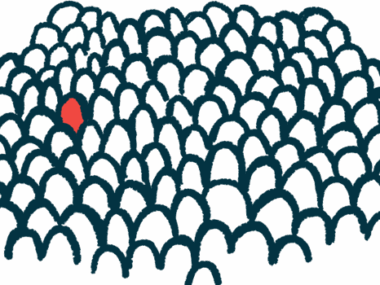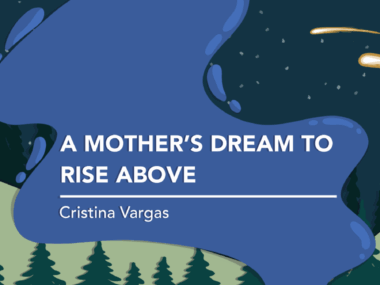Your Rare Disease Reading List for Quarantine: Part 2
Written by |

Part two of a series. Read part one.
If you’re like much of the world, you’ve spent more time at home than usual in 2020. This is especially true among the rare disease community, where many patients and their families have to take extra measures to avoid contracting COVID-19.
As for me, I haven’t stepped into the creative agency where I work as a content lead since mid-March. I haven’t run a single race, though I’ve run hundreds of solo miles to honor my late sister’s memory. And I’ve read 11 books since the pandemic hit the United States.
It’s a great time for reading, so why not support the rare disease community, get inspired, or learn something new? The following list completes my rare disease book selections to help you get through an especially difficult year. If you haven’t already done so, make sure to check out the first half of the list.
1. ‘Rare Is Everywhere,’ by Deborah R. Katz
I have a 1-year-old son, so I couldn’t release my own rare disease reading list without including at least one pick for younger readers. I bought Jack’s copy of this delightful picture book at a rare disease conference on the West Coast, but you can easily find it online. In “Rare Is Everywhere,” Katz takes kids on a fun journey through the animal kingdom (complete with rare animals, of course) to learn about and accept diversity in themselves and others.
2. ‘The Family Gene,’ by Joselin Linder
I connected with Linder when I was pitching my rare disease memoir, “Run to the Light,” to agents and editors more than four years ago. We finally met and exchanged books at the 2019 edition of Disorder: The Rare Disease Film Festival in San Francisco. “The Family Gene” is part medical mystery, part personal reflection, and I loved every page.
3. ‘The Forever Fix,’ by Ricki Lewis
Readers love Lewis’ DNA science blog for her ability to tackle complex science with heart, showcasing the incredible human stories that make up the fabric of rare disease. “The Forever Fix” is exactly like that. Lewis has authored many life science textbooks and other projects, but calls this narrative nonfiction gem the highlight of her career. It’s one of only two books my charity, Taylor’s Tale, bought in bulk for its board members, mostly because of its incredible chapters on Hannah Sames, Dr. Steven Gray, and the fight against giant axonal neuropathy.
Gene therapy is on a rapid rise, and for good reason. If you want to learn about it in an accessible, enjoyable way, grab a copy of “The Forever Fix.”
4. ‘The Still Point of the Turning World,’ by Emily Rapp
When I was in the early stages of writing my book, my astute editor suggested I read this book. A moving portrait of a mother’s journey through grief and beyond it, “The Still Point of the Turning World” offers an honest, touching perspective of what it means to have all of your hopes, dreams, and plans for your child stolen by a terminal rare disease diagnosis. Rapp’s son, Ronan, lost his battle with Tay-Sachs disease, but not before changing his parents and many others for the better. This book will make you think about what it means to live in the moment and find happiness in the most devastating situation.
5. ‘Thriving Blind,’ by Kristin Smedley with Erik Weihenmayer
What can I say about my friend Kristin Smedley? She’s an advocate. Speaker. Firecracker. Mom to three kids, including two sons who are legally blind. Kristin, founder of the Curing Retinal Blindness Foundation, calls for better resources for blind and visually impaired Americans. Her book, “Thriving Blind,” is a collection of short stories about blind people using creativity and determination to achieve their dreams, breaking down all kinds of barriers along the way. Sounds a lot like my sister, Taylor, who also was blind and skilled at breaking down barriers.
Have you read any of the books on this list? Please share in the comments below.
***
Note: Batten Disease News is strictly a news and information website about the disease. It does not provide medical advice, diagnosis, or treatment. This content is not intended to be a substitute for professional medical advice, diagnosis, or treatment. Always seek the advice of your physician or other qualified health provider with any questions you may have regarding a medical condition. Never disregard professional medical advice or delay in seeking it because of something you have read on this website. The opinions expressed in this column are not those of Batten Disease News or its parent company, Bionews Services, and are intended to spark discussion about issues pertaining to Batten disease.





Leave a comment
Fill in the required fields to post. Your email address will not be published.